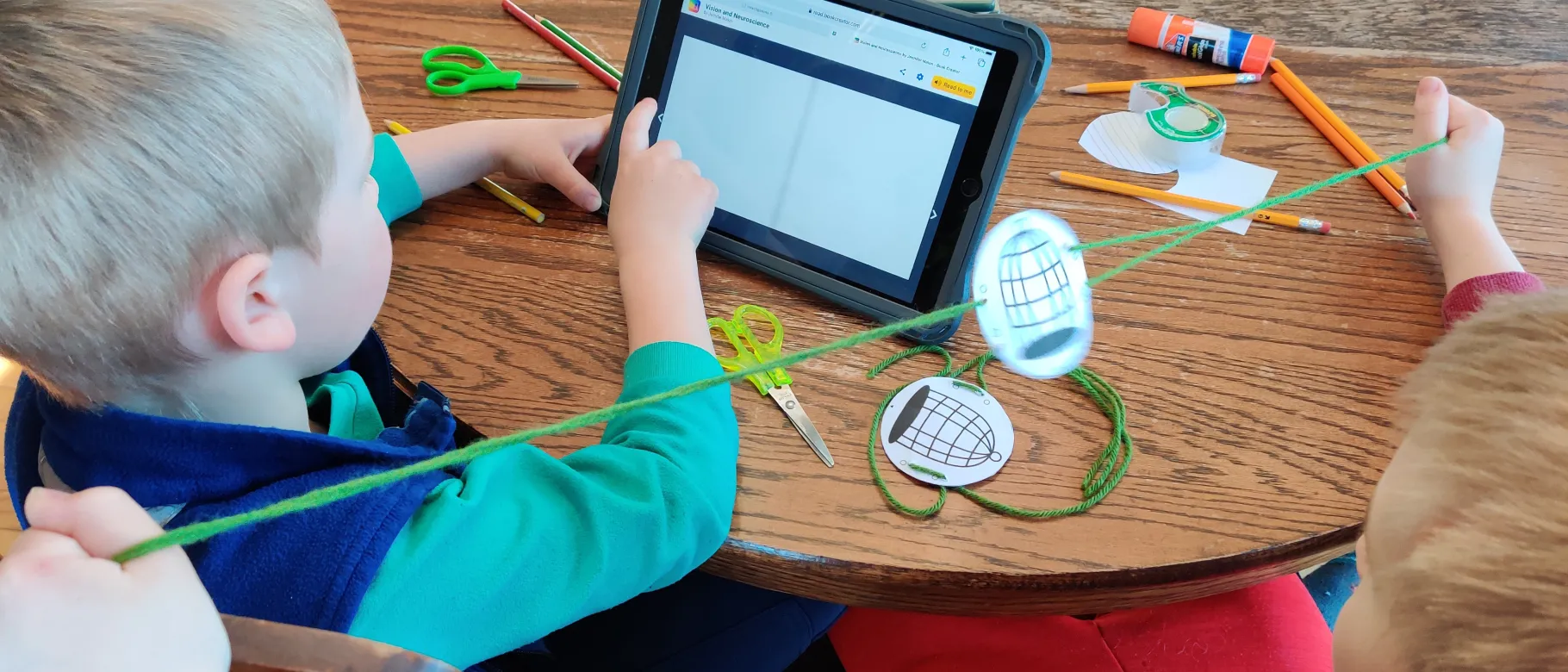In lieu of Brain Fair, neuroscience students create e-library of brain-related activities for school children

In recognition of Brain Awareness Week (March 15-21), a global campaign to foster public enthusiasm and support for brain sciences, UNE’s Center for Excellence in the Neurosciences is partnering with students in the Neuroscience Club to continue the University’s tradition of educating the local community about neuroscience and the brain in a fun, hands-on way.
For the past several years, UNE’s Brain Fair has been one of the highlights of the academic year, creating a science museum-like experience for community members by promoting interest in the STEM disciplines through engagement in neuroscience-related activities and experiments.
After the 2020 Brain Fair was cancelled as the result of the COVID-19 pandemic, Jennifer Malon, M.S., M.P.H., program coordinator of UNE’s Center of Biomedical Research Excellence (COBRE) for the Study of Pain and Sensory Function and organizer of the event since 2016, knew that she had to be prepared with an alternative to the in-person fair for 2021.
Neuroscience Club President Francesca Asmus (’22) said club members, too, realized that they would have to think creatively this year. “In the past, Neuroscience Club has done its fair share of outreach, but with the present challenges of COVID-19, we knew that we had to step up our game,” she said.
When Malon was introduced to the digital book-making tool Book Creator by a colleague, she recognized it as the perfect platform for enabling school children to experience the same kind of fun and excitement around brain awareness education that the annual Brain Fair is known for – sans in-person contact. She introduced the app to neuroscience students who are currently finalizing 10 e-books that they will make available to the public throughout Brain Awareness Week.
The e-books contain age-appropriate activities and experiments for children in grades 1-8, providing them with at-home lessons, activities, experiments, and educational videos that introduce them to brain-related topics, such as the five senses, the science of vision, brain safety, music and the brain, and more. The books are divided into two sets: one for grades K-3 and the other for grades 4-8. There are five books in each set, enabling the children to focus on a different book each school day during Brain Awareness Week.
Malon says the students involved in the e-library project – Asmus, Skylar McComas (’22), Randy Guay (’23), Anika Koopman (’24), and Aubrey Sahouria (’22) -- all neuroscience majors -- will promote the books to the community via social media and will target the Biddeford School system, in particular, with fliers.
According to Malon, recognizing Brain Awareness Week in public schools is particularly important this year, given the drastic changes that many schools have had to implement as the result of the pandemic. “During a time when some schools have had to cut science classes due to compacted school days, it is more important than ever that we share our knowledge and love of science with our local community,” she stated.
Asmus agrees that the pandemic-related restrictions under which schools are operating have resulted in decreased time allotted to STEM subjects, making 2021 a prime year for outreach. “Kids are going through a lot right now. A lot of material and subject matter is lost to accommodate the limited learning opportunities of online school,” she explained. “Science is a difficult area to just skim over, and I, like many other people, worried that kids would become discouraged or disinterested with the material. Our main goal with the outreach books was to provide supplementary material to inspire and/or revive children’s interest in science and bridge the gap left by online school.”
In January, the CEN was awarded a grant of $1,500 from the Dana Foundation to support the center’s brain awareness outreach efforts, and Malon says the funds will go towards providing Biddeford school children with the supplies needed for the hands-on activities outlined in the e-books. Activities include, among others, the demonstration of the Stroup Effect, a phenomenon in which a participant struggles to accurately read the names of colors that are written in colors different from the ones that they spell out; construction of a thaumatrope, an optical toy dating back to the 1800s that appears to blend two images into one; and an egg-drop experiment that promotes brain safety by instructing students to drop an egg (real or plastic) from a significant height both before and after fashioning a “helmet” for the egg.
The online component of 2021’s Brain Awareness Week celebration is not the only difference that Biddeford residents will notice this year. For the first time, the city of Biddeford is officially recognizing the importance of the week with an official proclamation, which was approved at the March 2 Biddeford City Council meeting. Mayor Alan Casavant expressed his pride in Biddeford’s support of the proclamation. “The University of New England’s scientific community is a leader in research of the brain and associated neurological conditions, and we are so fortunate to have UNE staff, professors, students, and researchers living and working within our city,” he said. “Brain Awareness Week is an opportunity for our residents to recognize the importance of brain research, as well as appreciate the relevancy of that research in finding cures and treatments of the many conditions that are affected by brain maladies.”
CEN director Ian Meng was appreciative of the proclamation and noted that it was emblematic of the strong relationship between UNE students and the city of Biddeford. “I’m so thankful for Biddeford’s support in our efforts to promote brain health and safety,” he stated. “Our students always enjoy the opportunity to engage with the community and make a difference, especially in these trying times.”